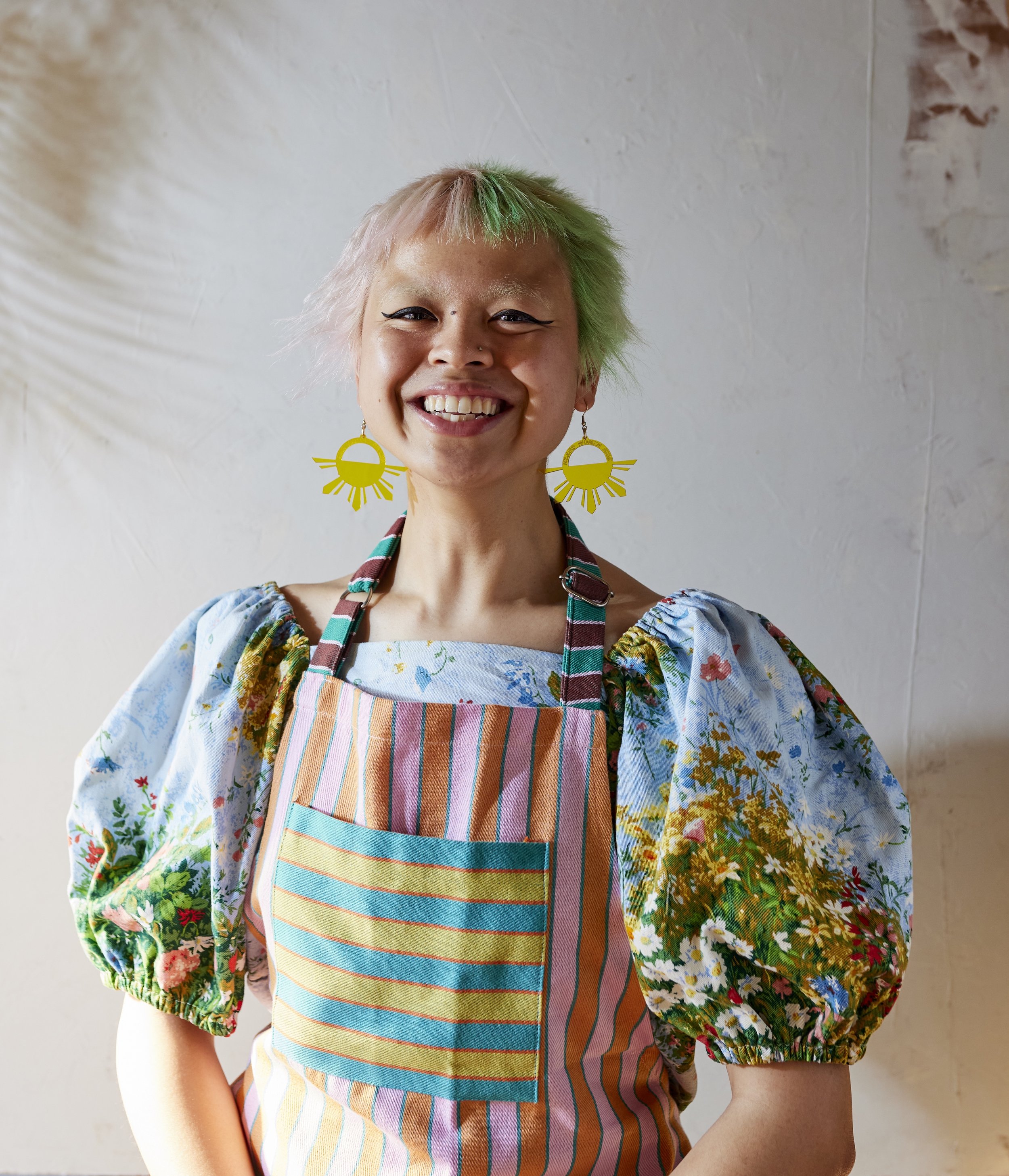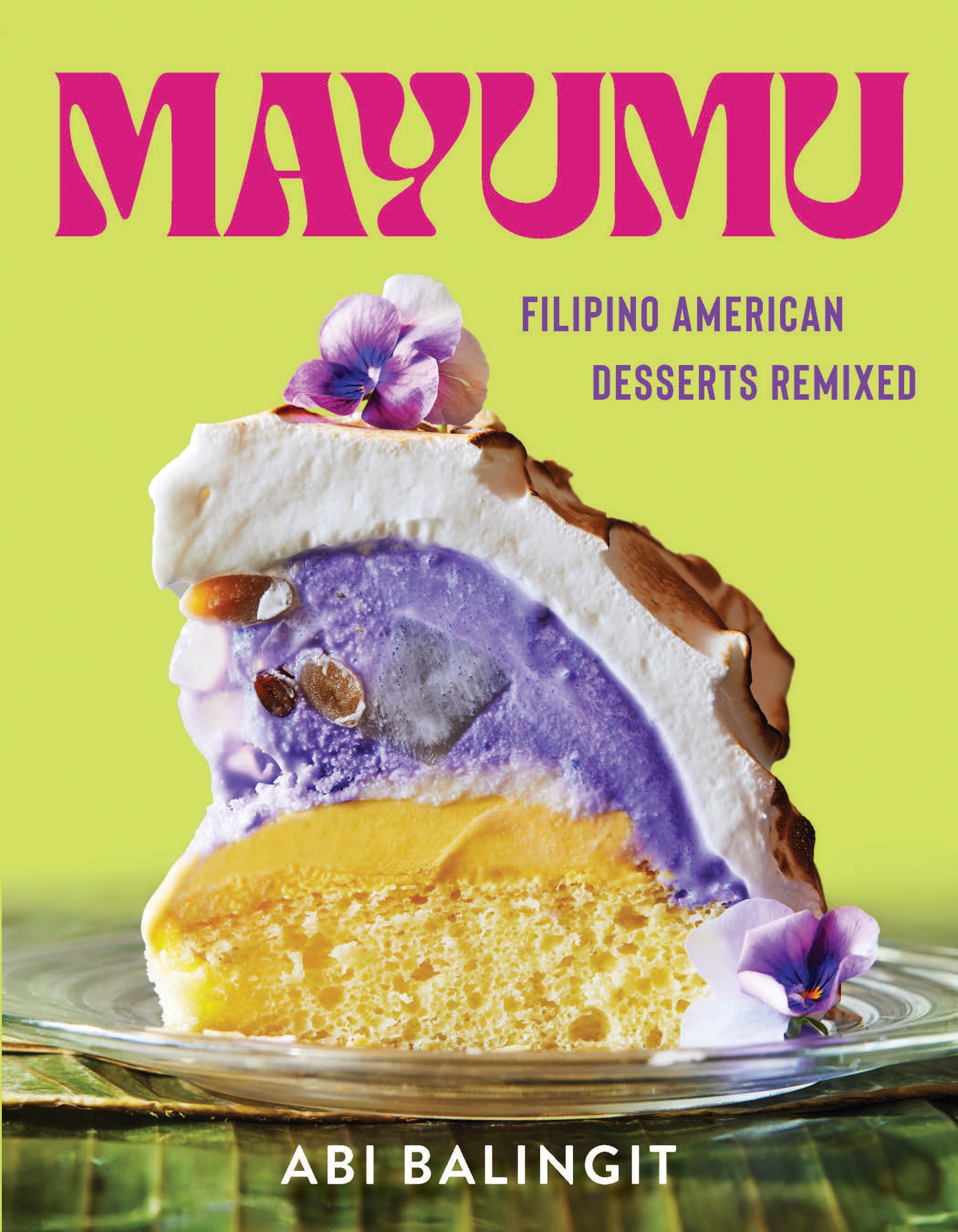Abi Balingit’s creative take on Filipino American desserts in ‘Mayumu’ cookbook
Abi Balingit, author of the cookbook, Mayumu: Filipino American Desserts Remixed. Photo: Nico Schinco
From passion fruit bars with tajín and strawberry pop rocks to white rabbit cream cheese swirl Thai tea blondies, Abi Balingit reimagines the traditional Filipino flavors and textures in sweets.
Diverging within the borders of what’s often familiar, Balingit challenges conventions by experimenting with a multitude of cultural taste buds and producing innovative desserts to interpret and implement what Filipino American cuisine can taste like in her first published cookbook, Mayumu: Filipino American Desserts Remixed. The book was named alongside others as one of the “Best Cookbooks of 2023” by the New York Times, Food Network, Harper’s BAZAAR, and the Los Angeles Times.
Growing up in a multigenerational household made her comfortable and appreciative of unfamiliar flavors from different backgrounds. Her recipes are not only born from her love of Filipino foods but also the flavors that highlight the diversity of the American palate she knows and enjoys, from the tropical flavors of the Philippines to the simplicity of peanut butter cookies of Western baked goods, coexisting into singularity. Mayumu pays homage to Balingit’s parents, who motivated her to explore whatever “food is on the table.” With their encouragement, Balingit had the opportunity to experiment with new and creative desserts that incorporate a balance of flavors such as sweet, sour, and even umami later on.
“There’s so much that the food can offer, and not just in the realm of the sweet,” Balingit said. “That was the driving factor of the book, trying to make each recipe have balance and harmony of all different types of influence and backgrounds.”
Her humble beginnings began while sheltering in place during the early months of the COVID-19 pandemic. In 2020, she started an online blog called The Dusky Kitchen to document her baking journey and share recipes with dessert enthusiasts in and beyond Brooklyn, NY. Readers were invited to traverse the stories of Balingit’s childhood and family, her relationships with her identity, and the thought process of incorporating intentionality and personality into her recipes.
In addition to publishing a cookbook filled with ingredients and measurements, Balingit’s goal was to create a vessel for storytelling. Between the lists of ingredients and baking measurements, Balingit shares her story and the tales of people with whom she built relationships in a collection of essays.
One of her recipes in Mayumu incorporates a chai masala element. Balingit asked a friend for her grandmother’s recipe and received the family’s blessing to publish it in the book.
“That meant a lot because it’s not just my family’s recipes, but my friend’s family’s recipe combined into one, like a Filipino-Indian fusion recipe. It is a product of friendship, camaraderie, and love,” Balingit said.
Along her baking journey, Balingit started selling her signature Pasalubong boxes to community members. Driven to support local businesses at risk of closing due to rising xenophobia during the pandemic, Balingit donated the proceeds of one of her treat boxes to Send Chinatown Love, an organization dedicated to helping local businesses in Manhattan’s Chinatown and other mom-and-pop businesses. She extended her support across borders by donating to organizations in the Philippines following a series of devastating typhoons in 2020.
“There’s always someone in need,” Balingit said. “That was something where I was like, yes, these proceeds are going far away. It feels very at home to me. Even though I am Filipino American, there’s a tie there.”
As the love for Filipino cuisine continues to flourish in the United States, Balingit is excited to see culinary creatives revive old recipes and redefine them for future generations to discover, experience, and enjoy.


